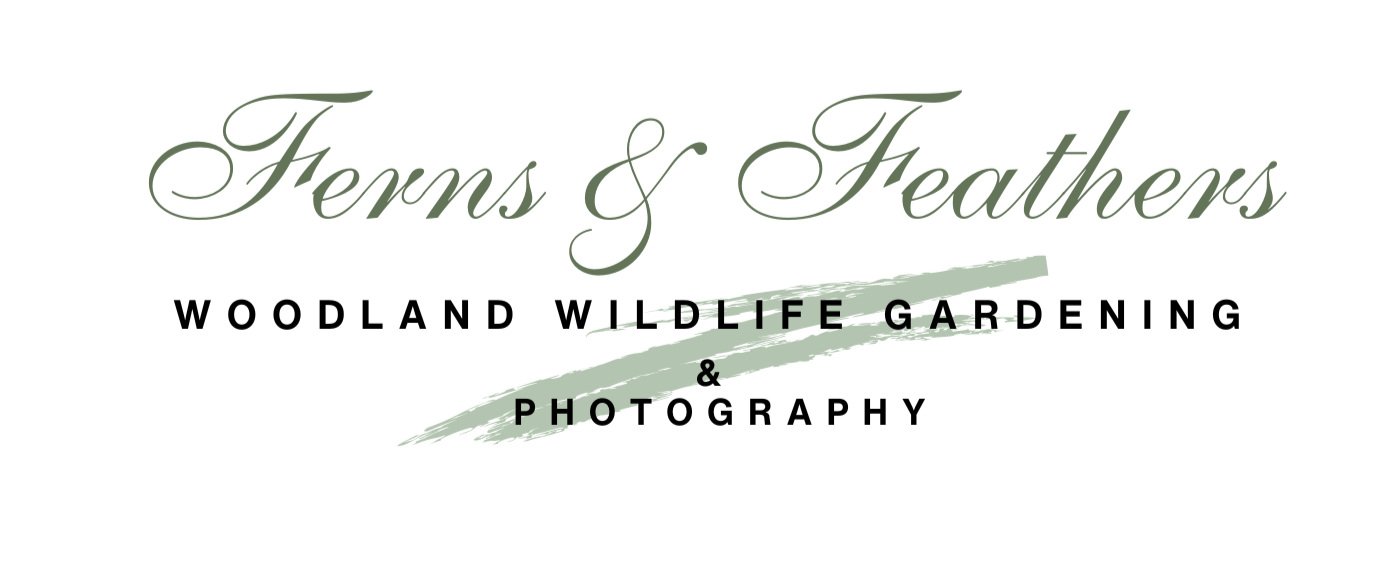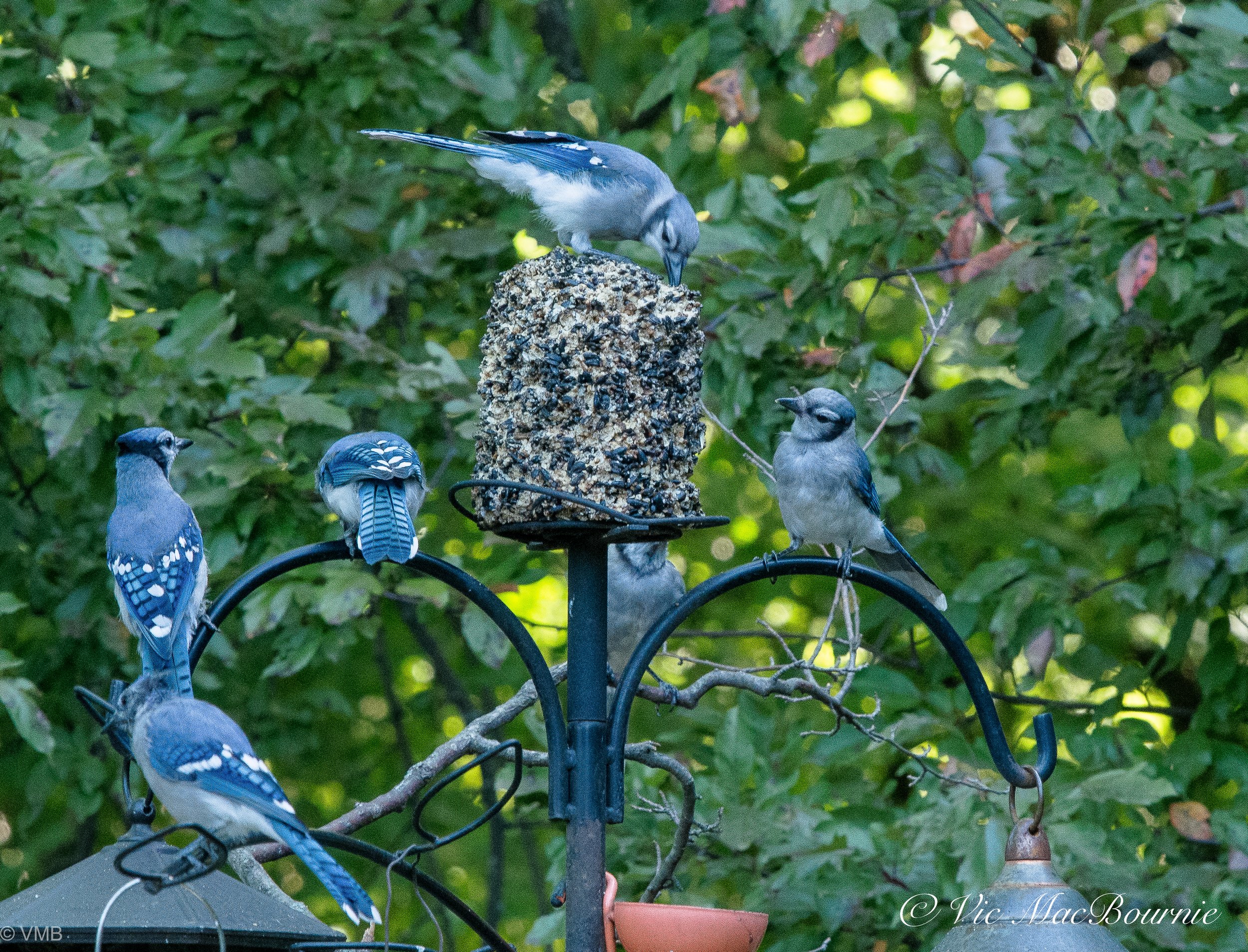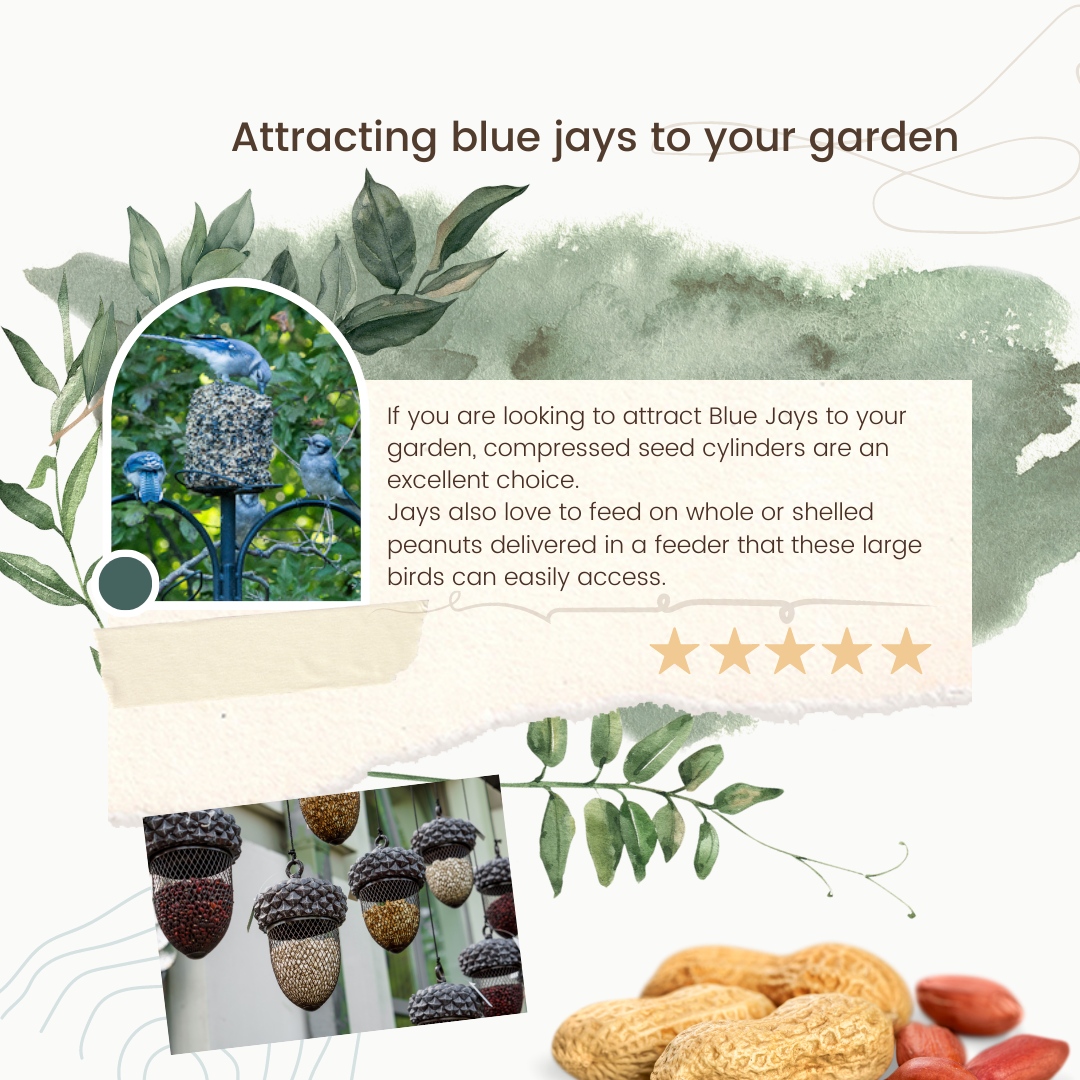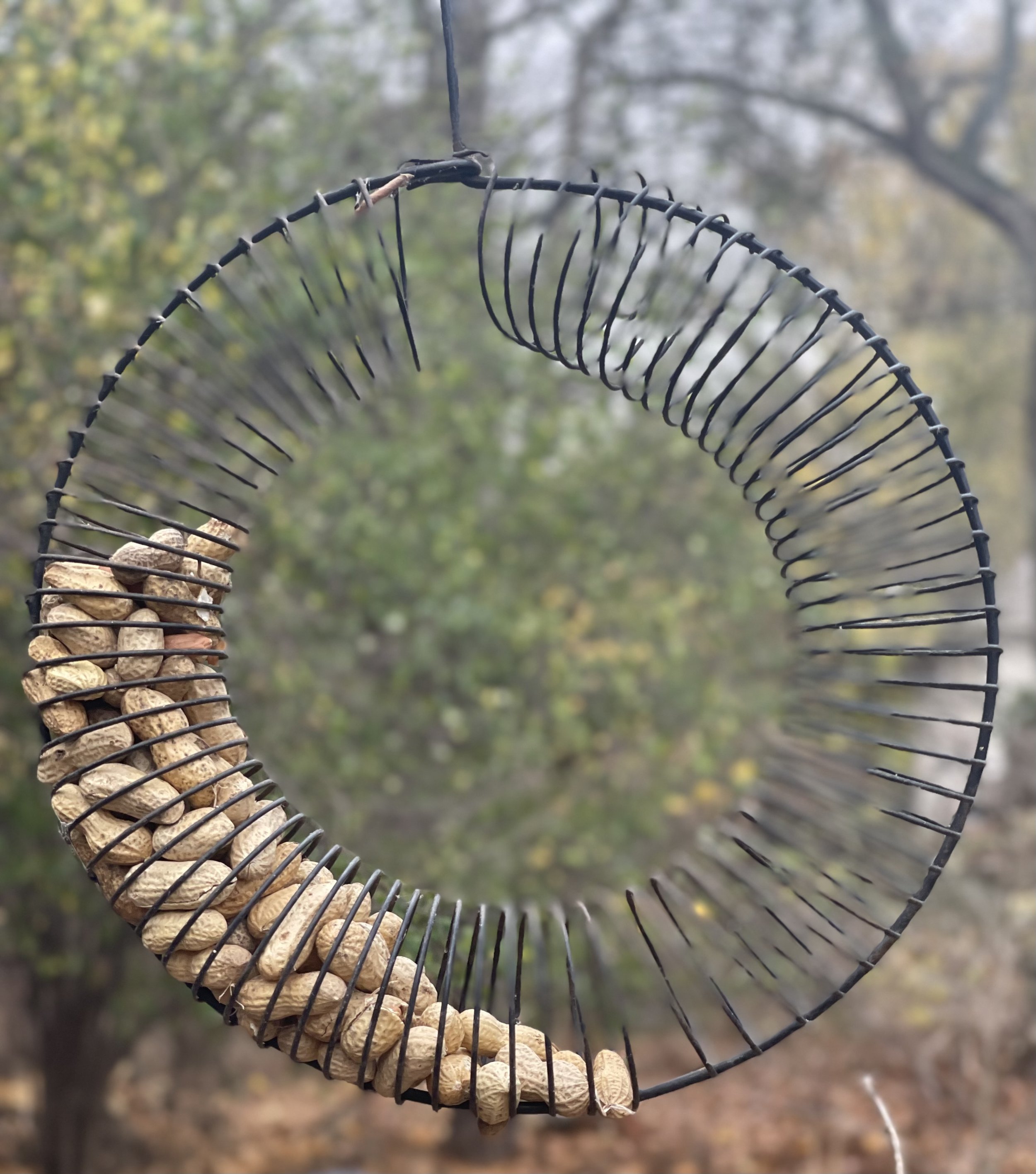What’s the best Blue Jay feeder?
Two of the best feeders to attract Blue Jays
Attracting Blue Jays to your yard begins with having the right bird feeders to deliver their favourite food.
In our yard, there are two feeders that do an excellent job attracting our northern blue jays year round.
The best Blue Jay feeders are both simple and inexpensive, and deliver Blue Jays’ their favourite foods in a convenient way that allows them to perch comfortably while feeding. A seed cylinder spike, and a wreath-style whole peanut feeder are two of the best feeders for blue jays.
If you follow this website, you’ll know that my all-round favourite bird feeder is a simple attachment to the Wild Birds Unlimited Advanced Pole system. It involves nothing but a spike that sits on top of the pole and holds a variety of compressed seed cyclinders.
This is a very simple system that works for me and the birds. The one problem I have is that the seed cyclinder is directly open to the elements. This allows the Jays and other birds to have easy access to the sides as well as the top of the seed cyclinders, but it also allows water to eventually get into the seed and begin to break down the “glue” (it’s actually a gelatin that works like glue), leading to the enventual early demise of the seed cyclinder.
There are seed cylinder feeders that include toppers to help protect the cyclinders from being totally exposed to the elements. I think they are certainly worth considering, especially if you live in a particularly rainy or snowy environment.
The spike is simply the delivery system for the seed cyclinders, so it’s paricularly important to provide the Blue Jays with their favourite foods in the cyclinders. Look for compressed seed cylinders high in their favourite foods – black oil sunflower seeds, regular sunflower seeds and unshelled peanuts.
The round peanut feeder above and pictured below is a real favourite of Blue Jays giving them plenty of space to land. Their strong beaks enable them to easily pull the peanuts out from between the springy wire circles holding them.
One of the main reasons the cylinders are so attractive to blue jays and less attractive to some other backyard birds, is the fact that blue jays have very strong beaks that allow them to pound at the cyclinders to get the seeds they want. Our cyclinders are most visited by blue jays and woodpeckers. Other, smaller birds, are left to pick up the pieces of seed that fall off when the jays and woodpeckers attack the cylinders.
If you are interested in more information on attracting Blue Jays to your backyard, check out my post on Blue Jays and West Nile.
The spiked bird feeder that holds the compressed seed cyclinders doesn’t have to go on the top of a pole. Attachments are available to use a spike and seed cyclinder attachment as an accessory on other parts of either the WBU Advanced Pole System or other bird feeding station. Some spike-style accessories can be hung on feeders after inserting the seed cylinder, so there is no excuse for not adding one to your bird feeding station.
Blue jays flock to the Wreath feeder for peanuts
While the seed cyclinder feeders are excellent for attracting blue jays to your yard, I think the wreath feeder filled with shelled peanuts is the best feeder to attract the birds.
The main reason for the success of the wreath feeder is what we will them with – shelled peanuts. I think shelled peanuts are blue jays’ favourite food. And, because the shells are difficult for smaller birds to penetrate, you can count on your blue jays to get most if not all of the peanuts. The wreath feeder can accommodate a number of blue jays at one time and provides them a good perch to remove the whole peanuts from the cyclinder.
Woodpeckers also enjoy whole peanuts in the wreath, but they primarily peck away at the peanuts rather than remove them to eat elsewhere like blue jays do.
The only problem I have with a wreath-style feeder is loading it with peanutes. While it’s not particularly difficult, I find loading them by hand can be a little bit tedious. I’m sure there are better ways to load peanuts into the feeder, but so far I have not discovered it.
The wreath feeders are a particularly effective way of delivering whole peanuts, but there are several other ways to deliver whole peanuts that can also work.
The Urban Nature Store in Canada actually groups their feeders according to what feeders are best for specific birds. Check out their list of best blue jay bird feeders just to get a feel for what feeders are best.
Check out your local bird store for other peanut feeders.




